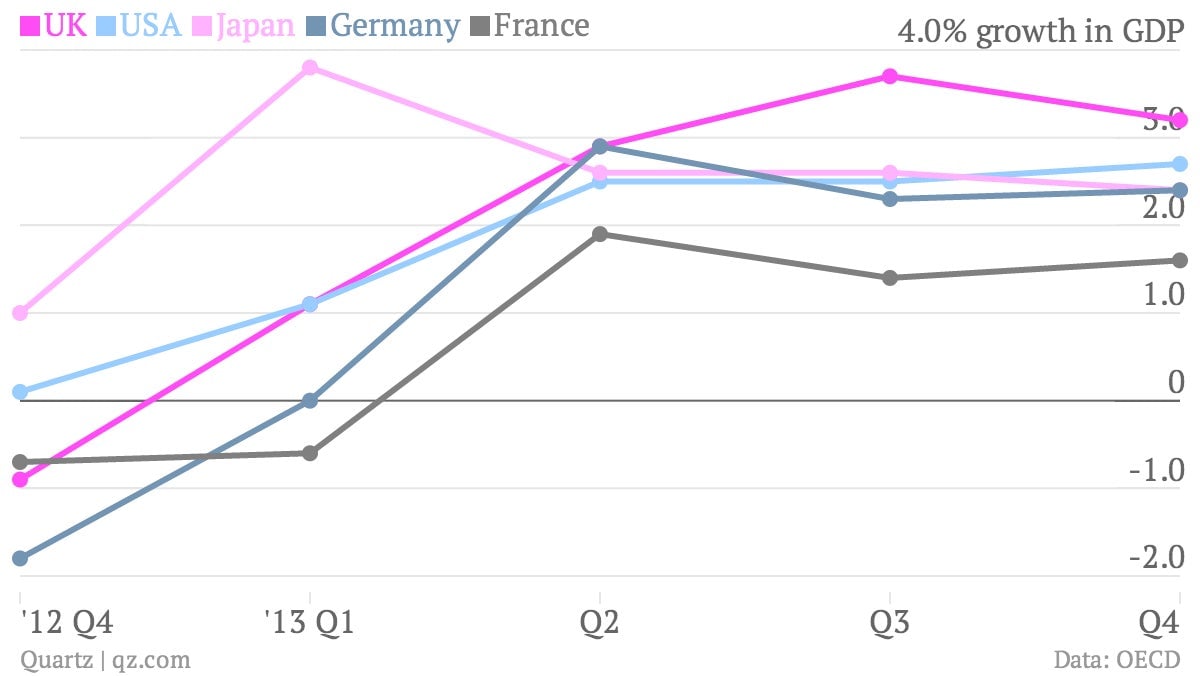The Bank of England may need to rein in the British economy sooner than it thought
Talk about rebalancing. The latest economic projections from the OECD paint a rosy picture for the UK economy. Not long ago, Britain was flirting with a double-dip recession. Now, the OECD reckons it will be one of the fastest-growing rich-world countries in the second half of this year.


Talk about rebalancing. The latest economic projections from the OECD paint a rosy picture for the UK economy. Not long ago, Britain was flirting with a double-dip recession. Now, the OECD reckons it will be one of the fastest-growing rich-world countries in the second half of this year.

This isn’t the only good news to come out of the UK this week. Today, the service-sector purchasing manager’s index for August reached its highest level since 2006. The sub-index for new business touched a 16-year high, reflecting a “strengthening of market confidence which helped companies convert enquiries into hard contract wins”, as the official release (pdf) put it. The service sector accounts for more than three-quarters of the UK economy.
All this is sure to lead British officials to upgrade their own forecasts. Compared with the latest projections from institutions like the Office for Budget Responsibility and the Bank of England, the OECD’s third- and fourth-quarter forecasts are at least a full percentage point higher.
Although the news is obviously welcome, it puts the UK’s recently installed central bank governor, Mark Carney, in a bit of a spot. He unveiled a new “forward guidance” policy last month, pledging to keep interest rates at historic lows until unemployment falls below 7% (it is currently 7.8%). The bank said it expects that to happen sometime in late 2016. But that was before the latest slew of data.
Like the speculation over the pace of “tapering” (i.e., winding down monetary stimulus) at the Federal Reserve, the feeling in the UK is that low interest rates and quantitative easing will reverse course sooner than officials are suggesting. Carney and the rest of the bank’s rate-setting committee meet tomorrow, though, and aren’t expected to change current policy. Any signs, however small, of a firmer stance in the face of stronger economic growth would push bond yields, already rising, up even further.
Like his counterpart across the Atlantic, Ben Bernanke, Carney’s power to move markets is enhanced when traders anticipate a change in tack. The Bank of England’s new approach to guidance has already proved divisive among its board members. Combined with a string of unexpectedly strong economic data, markets in London could be in for a wild ride.